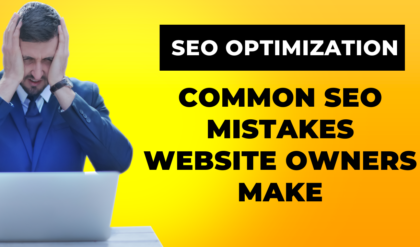SEO Free Course. Search engine optimization (SEO) is the process of optimizing a website or web page to improve its ranking on search engine results pages (SERPs). SEO is a crucial aspect of digital marketing, as it helps to increase the visibility and reach of a website. Ultimately driving more traffic and potentially more business.
In this complete SEO Free course, we will cover the basics of SEO. And how to implement it effectively to improve your website’s performance.
-
Understanding Search Engines
To begin, it’s important to understand how search engines work. Search engines like Google, Bing, and Yahoo use complex algorithms to determine the relevance and authority of a website or web page, which ultimately determines its ranking on SERPs. These algorithms take into account a wide range of factors, including keywords, backlinks, meta tags, and more.
-
Keyword Research
Keyword research is the process of identifying the keywords and phrases that people are searching for on search engines. These keywords and phrases are then used to optimize a website or web page to improve its ranking on SERPs. Keyword research is a crucial aspect of SEO. As it helps to ensure that your website or web page is targeting the right audience.
-
On-Page SEO
On-page SEO refers to the optimization of the content and structure of a website or web page. This includes optimizing the title tags, meta tags, header tags, and content to include relevant keywords and phrases. It also includes improving the overall structure and user experience of the website or web page, such as by including a clear and easy-to-use navigation menu.
-
Off-Page SEO
Off-page SEO refers to the optimization of a website or web page outside of its own content. This includes building backlinks from other websites, which are essentially links that point to your website or web page. Backlinks are important. Because they help to increase the authority and credibility of a website or web page, which in turn improves its ranking on SERPs.
-
Measuring and Analyzing Results
Once you have implemented SEO techniques, it’s important to measure and analyze the results to see what’s working and what’s not. There are a number of tools available to help you do this, such as Google Analytics and SEMrush. These tools allow you to track your website’s traffic, and monitor your rankings on SERPs. And also to identify any issues that may be impacting your performance.
-
Staying Up-to-date
SEO is an ever-evolving field and it’s important to stay up-to-date with the latest trends and best practices. Search engines are constantly updating their algorithms and new trends are emerging all the time. It’s important to keep an eye on these changes and adapt your SEO strategy accordingly. Some of the best ways to stay up-to-date include reading industry blogs and attending SEO conferences.
In conclusion, SEO is a crucial aspect of digital marketing that helps to improve the visibility and reach of a website or web page. By understanding how search engines work, conducting keyword research, optimizing on-page and off-page elements, measuring and analyzing results, and staying up-to-date with the latest trends, you can improve your website’s performance on SERPs and drive more traffic and business.





